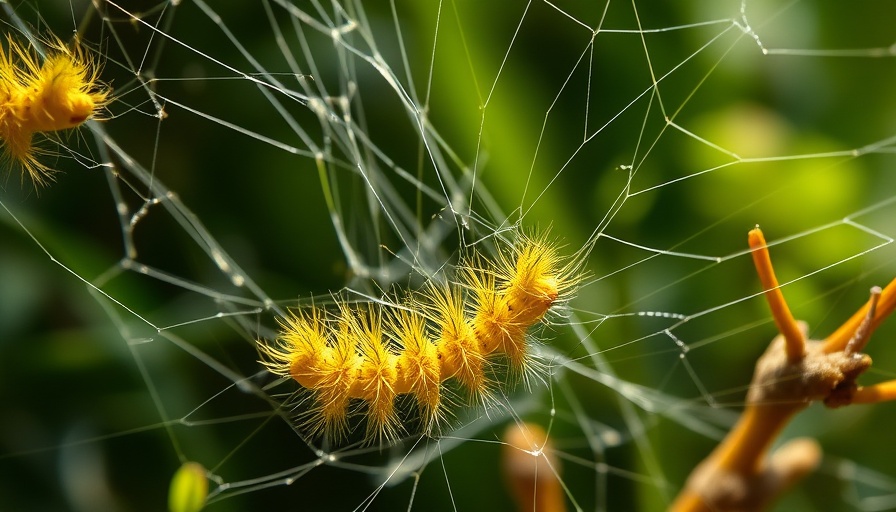
The Hidden Threats in Your Garden: Identify and Eliminate
For gardening enthusiasts, nothing is more disheartening than watching pests invade your lovingly cultivated plants. From aphids to rats, various critters can infiltrate your garden, leading to potential ruin. Thankfully, with the right knowledge and strategies, you can defend your garden against these pesky intruders.
Aphids: Small but Mighty
Aphids are notoriously small yet damaging pests that can quickly disrupt your garden's health. Often appearing in colors like green, black, and brown, these pear-shaped insects feed on new plant growth, leading to stunted growth and deformities. Their rapid reproduction rate is alarming; a single female can lay up to 500 eggs during her lifetime. When faced with an aphid infestation, consider using a strong stream of water to dislodge them, or apply insecticidal soap or neem oil to eliminate these unwanted guests. For significant infestations, enlisting a professional pest control company can save your garden.
Japanese Beetles: A Garden Menace
Originating from Japan, Japanese beetles have made their presence known in the United States since 1916, becoming a significant threat to healthy plants. Known for their distinctive metallic sheen, these beetles feast on the foliage, causing considerable damage and making control challenging due to their ability to fly long distances. Strategies like handpicking them into soapy water or using pheromone traps can mitigate their numbers. Planting resistant varieties is another proactive way to beat this pest.
Rats: Unwelcome Visitors
Rats may not be the first pest that comes to mind, but they pose significant risks to your garden. These nocturnal creatures not only consume your plants but also pose health risks by transmitting diseases. Signs of a rat presence include visible holes, gnawed leaves, or droppings. Given their stealth and the potential health hazards they create, seeking assistance from pest control professionals is advisable if you suspect they have invaded your garden.
Ants: The Silent Spreaders
Although ants are often seen as harmless, they can severely damage your plants by nesting in the soil and aiding the spread of diseases. These little warriors can reproduce quickly, making them a challenging pest to manage. Monitor your garden for signs of ant activity, especially near roots and foliage, and implement bait traps or natural deterrents.
Innovative Solutions for Pest Control
While traditional methods of pest control like chemical insecticides are available, many gardeners now seek sustainable strategies that align with modern environmental consciousness. Options include planting companion plants like marigolds to deter aphids or utilizing natural predators such as ladybugs, which thrive on aphids. These alternative methods not only reduce harm to the environment but also ensure a healthier harvest.
Building a Resilient Garden Ecosystem
Understanding the benefits of creating a diverse garden ecosystem can greatly enhance pest control efforts. By incorporating a variety of plants—including flowers, herbs, and vegetables—you can attract beneficial insects, enhance pollination, and minimize the chances of infestation. Additionally, implementing practices like crop rotation and intercropping can improve soil health while keeping pests at bay.
Actionable Steps for Pest Management
Creating a balanced approach to pest management focuses on identification, prevention, and action. By regularly inspecting your plants, employing natural remedies, and knowing when to call in the experts, you can protect your garden’s integrity. Remember, a proactive gardener stands the best chance of enjoying a bountiful harvest.
As you embark on your gardening journey, consider seeking the assistance of local community gardens or urban farming workshops. Building a network of fellow gardeners will not only enrich your knowledge but provide a support system in pest prevention and organic gardening practices. Embrace the challenge of pest management, and let your garden flourish!
 Add Row
Add Row  Add
Add 




 Add Row
Add Row  Add
Add 

Write A Comment